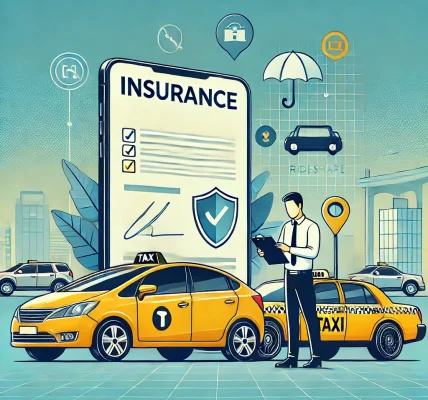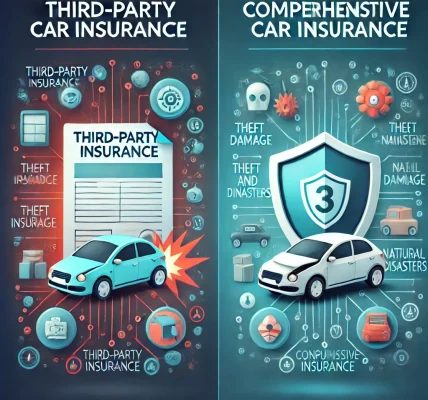Introduction
As the popularity of electric vehicles (EVs) continues to rise, many drivers are discovering the benefits of making the switch to cleaner, more sustainable transportation. However, one area that often confuses new EV owners is car insurance. While insuring an electric car might seem similar to insuring a traditional vehicle, there are important differences to be aware of when it comes to coverage, premiums, and policy options.
In this comprehensive guide, we’ll walk you through everything you need to know about car insurance for electric vehicles (EVs), including how it differs from standard car insurance, what factors affect your premium, and how to choose the right policy for your EV.
How Is Car Insurance for Electric Vehicles Different?
Car insurance for electric vehicles is similar to insurance for traditional gasoline-powered cars in many respects. However, there are key differences that may impact the cost of your insurance and the type of coverage you need. Understanding these differences is crucial to ensuring you get the best coverage for your EV.
1. The Cost of the Vehicle
One of the most significant factors influencing the cost of car insurance for an electric vehicle is the price of the car itself. In general, electric vehicles are more expensive to purchase than their gasoline-powered counterparts. This is primarily due to the cost of the battery, which is a major component of the vehicle.
- Higher Replacement Costs: If your EV is involved in an accident, the cost to repair or replace it may be higher than that of a traditional car. This is especially true for high-end electric models like Tesla, which have expensive parts and advanced technology.
- Battery Replacement: EV batteries are expensive to replace, and in the event of a serious accident, this cost may be factored into your insurance premium.
2. Battery-Specific Coverage
Unlike traditional cars, electric vehicles rely heavily on batteries. As such, many insurers offer battery-specific coverage as part of your policy. This coverage protects you in case your EV’s battery is damaged, which can be a costly repair.
Some insurers may bundle battery insurance into the comprehensive coverage, while others may offer it as an additional add-on. It’s important to check with your insurance provider to see if battery coverage is included in your policy or if you need to purchase it separately.
3. Repair Costs and Specialized Parts
Electric vehicles often require specialized parts and repair services that may not be as widely available as those for traditional cars. Many mechanics may not be trained to handle electric vehicle systems, and not all auto repair shops may be equipped to work with the unique parts of an EV.
- Limited Repair Shops: There are fewer repair shops that specialize in EVs, and this can result in higher labor costs for repairs.
- Parts Availability: Replacement parts for EVs may be more expensive than parts for traditional cars, and the cost of labor to repair an EV can be higher due to the specialized knowledge required.
Because of these factors, some insurers may charge higher premiums for EVs to cover the increased risk and cost of repairs.
4. Safety and Theft Risk
EVs are generally safer than traditional cars due to their design and advanced safety features, such as automatic braking, lane-keeping assist, and collision avoidance systems. Many insurance companies offer discounts for vehicles with advanced safety features, which can help lower premiums for EV owners.
However, because EVs are still relatively new and expensive, they can also be targets for theft. High-end electric vehicles, in particular, may attract thieves looking to steal their batteries or components.
5. Environmental Impact and Discounts
Some insurers offer discounts to drivers of eco-friendly vehicles, including electric cars. This is due to the environmental benefits of driving an EV, as they contribute to reducing emissions and reliance on fossil fuels. Many insurance companies offer green car insurance discounts or specialized policies for eco-friendly vehicles.
If you drive an EV, it’s worth asking your insurer if they offer any discounts for being environmentally conscious.
What Factors Affect Your EV Insurance Premium?
Just like with traditional car insurance, several factors will determine the cost of your electric vehicle insurance premium. Here are some of the key factors that influence your premium:
1. Vehicle Model
The make and model of your electric vehicle are some of the most important factors in determining your premium. High-end electric vehicles, like Tesla, Lucid, or Audi e-tron, will likely come with a higher insurance premium due to their higher replacement costs and advanced features. More affordable EV models, like the Nissan Leaf or Chevy Bolt, typically have lower premiums.
- Luxury EVs: Luxury EVs come with advanced technology and costly components, which can make them more expensive to insure.
- Economical EVs: Lower-cost models are typically cheaper to insure because their replacement costs and repair expenses are lower.
2. Driving History
Your personal driving history will also play a role in determining your insurance premium. Just like with traditional cars, insurers will assess your driving record to determine how risky you are as a driver.
- Clean driving history: If you have a clean driving record, you may qualify for lower premiums.
- Accidents or violations: If you’ve been involved in accidents or have traffic violations, you may face higher premiums, even if you drive an EV.
3. Location
Your location plays a crucial role in determining your insurance premium. Areas with high traffic, higher rates of accidents, or theft will typically have higher premiums. If you live in an area with a higher incidence of EV theft or accidents, your premiums may be adjusted accordingly.
4. Annual Mileage
The number of miles you drive annually also impacts your car insurance rate. If you use your EV for commuting long distances or frequent travel, your insurance premium might be higher compared to someone who uses their EV occasionally.
Some insurers offer low-mileage discounts for drivers who don’t drive their vehicles extensively.
5. Coverage Type
The type of insurance coverage you choose will have the greatest impact on your premium. A basic liability insurance policy will typically be much cheaper than a comprehensive or collision policy.
If you choose to cover your EV with a comprehensive or collision policy, your premium will be higher due to the increased risk and higher repair/replacement costs of EVs.
How to Save on Car Insurance for Your Electric Vehicle
While electric vehicle insurance can be more expensive than traditional car insurance, there are ways to reduce your premiums and save money:
1. Look for Eco-Friendly Discounts
Many insurers offer discounts for environmentally friendly vehicles, including electric cars. These discounts can help offset the higher cost of insuring an EV. Be sure to ask your insurance provider about any available green car insurance discounts.
2. Choose the Right Coverage
Consider the level of coverage you need. If your EV is older and has a lower value, you may not need comprehensive or collision coverage. Opting for liability-only coverage or a high-deductible policy can help reduce your premium.
3. Maintain a Good Driving Record
Just like with traditional car insurance, maintaining a clean driving record can help lower your insurance costs. Safe driving habits and avoiding accidents or traffic violations will ensure you get the best possible rates.
4. Install Safety Features
Many insurance companies offer discounts for vehicles equipped with advanced safety features, such as lane departure warnings, automatic emergency braking, and adaptive cruise control. These features not only make driving safer but can also lower your premiums.
5. Shop Around for Quotes
Since electric vehicle insurance can be expensive, it’s important to shop around for the best rates. Different insurers offer different pricing models, so comparing quotes can help you find the most affordable option for your EV.
Conclusion
As the demand for electric vehicles continues to grow, understanding how to insure your EV properly is crucial. While insuring an electric vehicle can be more expensive due to factors such as the cost of the vehicle, the battery, and specialized repairs, there are ways to save on your premiums.
By understanding the unique factors that affect your EV insurance premiums and taking steps to reduce costs, you can ensure that you’re getting the best possible coverage at an affordable price. Be sure to ask your insurer about any eco-friendly discounts and consider the type of coverage that best suits your needs and driving habits.
With the right insurance plan, you can enjoy the benefits of driving an electric vehicle without breaking the bank on premiums.



